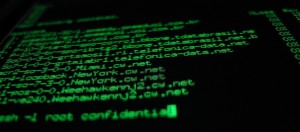When many, if not most, readers enter a fictional world, they want to stay there until they’re ready to leave. For us writers, that means having to avoid doing anything that pulls the reader out of our world. Failing in this task may make it difficult for a given reader to buy into our creation. They may set it down and move onto something else. If this happens, we’ve lost them.
Any aspect of storytelling is vulnerable to this. Someone breaking out of character, the introduction of a deus ex machina, and even poor handling of point-of-view are all good ways of infuriating readers, and rightly so: they are violations of an unspoken trust with our readers that the stories we are telling them are self-consistent.
Setting is an aspect of storytelling which is particularly vulnerable to this kind of violation, especially in genres where setting is important, such as in fantasy, sci-fi, and historical fiction (by setting, I mean all things related to world-building, such as culture, dress, geography, the laws of physics or magic, etc.). Read enough reviews in any of those genres and you will see that one of the widest criticisms is that the author described some event that could not or would not have happened in that context, and thus the reader was pulled out of the story. There’s a good reason for why this can be such a problem for a writer: setting, by its very nature, consists of a vast number of interrelated concretes. Consider the difference between a character arc and a city, full of people, buildings, roads, belief systems, cultures, and so on, and you should see what I mean. It’s very possible (and necessary) to track the shape of a particular character’s arc, but far more complicated to track the goings-on of every person and thing in a city. There are many ways we can forget a detail that affects the story later on, and thus cause one of those reader-losing violations.
Of course, simply not knowing how an aspect of your world works can also do this. Many of our readers are smart enough to know that you can’t ride a horse at a gallop while swinging a fifty-pound sword for five hours straight. As most writers should by now know, doing some research solves most of these problems.
But there’s another related issue that can be a little subtler, and it relates purely to a world’s self-consistency. Unless you’re writing an alternate history or time travel yarn, your Imperial Roman soldier isn’t going to call his wife on his cell phone, since cell phones didn’t exist back then. An obvious example, but things get a little trickier when you’re writing in a purely secondary (or, purely imagined) world.
I once wrote an epic fantasy story in which one of my characters was exhausted, and was described as feeling as if he had just run a marathon. While it seemed pretty innocuous to me at the time, someone in my writing group couldn’t buy into it, because the word “marathon” is named for the run of Greek soldier Pheidippides during the Battle of Marathon. And since such an event never occurred in my world, he argued, how would the concept of a marathon in the normal sense even arise?
Hearing his criticism was a bit of a wake-up call for me, and now I sometimes find myself watching out for the same thing with books that I read (as much as I’d rather just sit back and enjoy them). Of course, in my hierarchy of priorities, I’m going to put a satisfying plot over catching myself using the word “marathon,” but I still keep an eye out for something like that slipping in. Whether or not you’re that meticulous about your world’s etymology, rest assured that some of your readers will be.
* For another interesting post on the topic of word choice, check out the earlier post by Mignon Fogarty, a.k.a. Grammar Girl, if you haven’t already.

